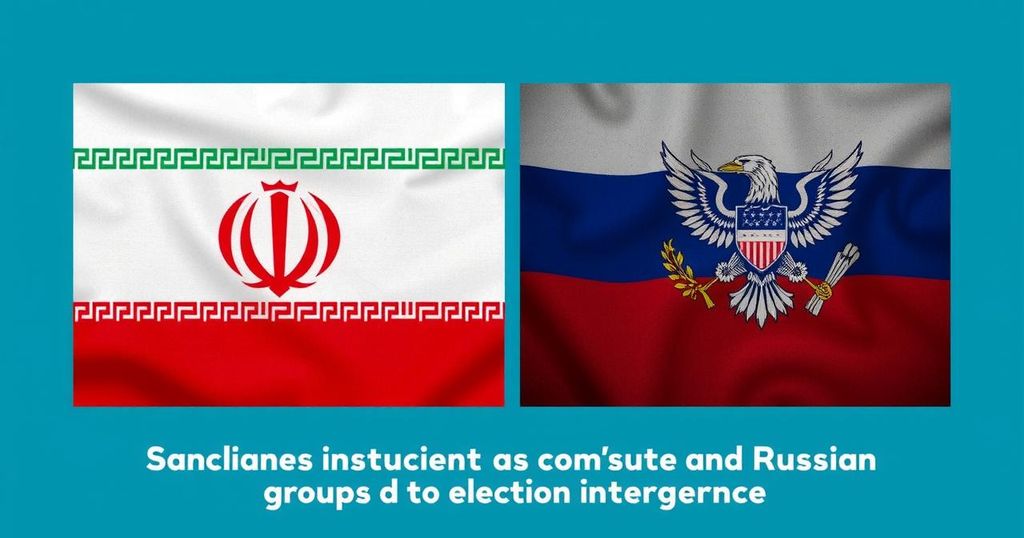The United States has imposed sanctions on Iranian and Russian organizations accused of interfering in the U.S. electoral process, specifically targeting the Cognitive Design Production Center and the Center for Geopolitical Expertise. These groups are linked to disinformation campaigns aimed at inciting division among voters ahead of the 2024 elections. In a related action, a Russian judge was sanctioned for her role in the detention of an opposition figure.
On Tuesday, the United States announced a new set of sanctions targeting Iranian and Russian entities alleged to have engaged in election interference. The sanctions specifically identified the Cognitive Design Production Center, linked to Iran’s Islamic Revolutionary Guard Corps (IRGC), and the Moscow-based Center for Geopolitical Expertise, as key players in efforts to disrupt the integrity of the U.S. electoral process. This action reflects ongoing concerns about foreign influence in American democracy, particularly in light of the upcoming 2024 elections.
Bradley Smith, Acting Under Secretary of the Treasury for Terrorism and Financial Intelligence, stated, “The Governments of Iran and Russia have targeted our election processes and institutions and sought to divide the American people through targeted disinformation campaigns.” The Treasury Department indicates that these organizations aimed to incite socio-political divisions within the U.S. electorate.
The Cognitive Design Production Center is accused of planning operations intended to exacerbate tensions among voters in preparation for the forthcoming elections. Concurrently, the Center for Geopolitical Expertise has allegedly been involved in the creation and dissemination of deepfake videos aimed at spreading disinformation regarding candidates. As part of the sanctions, not only the center but also its director, Valery Mikhaylovich Korovin, has faced penalties.
These sanctions complement previous measures against the IRGC, GRU, and their affiliates. In a related context, U.S. authorities have previously charged Iranian officials with efforts to undermine public trust in U.S. democracy through various means, including accessing individuals close to presidential campaigns.
In a separate sanction issued on the same day, Russian judge Olesya Mendeleeva was penalized due to her involvement in the prosecution of former Moscow city councilor Alexei Gorinov, who was imprisoned for opposing Russia’s military actions in Ukraine. Smith remarked, “Russia’s manipulation of its legal system silences dissent and suffocates the truth about Russia’s indefensible war against Ukraine.” Calls have arisen from international human rights organizations for the immediate release of Gorinov, highlighting the repressive environment within Russia regarding dissenting voices.
This article highlights the increasing vigilance of the United States against foreign interference in its electoral processes, particularly by Iran and Russia. The sanctions imposed illustrate a proactive approach in addressing threats posed by organizations and individuals linked to influential government sectors in these nations, emphasizing the broader context of geopolitical tensions and concerns over the integrity of democratic institutions. Furthermore, it underscores ongoing issues surrounding Russia’s legal system and its treatment of dissent in the context of the war in Ukraine.
In summary, the U.S. government’s recent sanctions against Iranian and Russian groups reveal significant apprehensions regarding external interference in American elections. The actions taken reflect a broader strategy to safeguard democratic processes and address misinformation campaigns while revealing the United States’ commitment to countering foreign threats to its electoral integrity. Additionally, the sanctions against the Russian judge highlight the global implications of political repression within Russia’s legal framework.
Original Source: www.barrons.com






